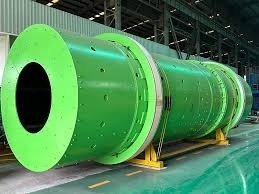As climate change takes center stage in global agriculture and manufacturing, the fertilizer industry is under increasing pressure to cut emissions without sacrificing efficiency. In 2024, the push for green NPK fertilizer production is not just a trend—it’s a necessity.
Fertilizer plants that fail to adapt to sustainable practices risk falling behind, both in terms of environmental compliance and profitability. But here’s the good news: with new granulation methods and smarter process design, you can dramatically lower the carbon footprint of your Npk fertilizer production line while maintaining—or even improving—output quality.
In this article, we’ll explore how modern technology is reshaping the way fertilizers are made and how brands like Cementl are leading the way with cleaner, more efficient NPK Fertilizer Production Line solutions.
Why Focus on Green Fertilizer Production?
Traditional fertilizer production, especially for nitrogen, phosphorus, and potassium blends, consumes large amounts of energy and releases harmful emissions. Between combustion gases, dust, and excess heat, a single outdated plant can generate tons of carbon dioxide yearly.
As global regulatory bodies crack down on industrial pollution, and consumers demand more sustainable food systems, fertilizer producers have a unique opportunity to make a difference—both environmentally and economically.
Granulation: The Heart of the Carbon Challenge
In an NpK Fertilizer Production Line, granulation is one of the most energy-intensive stages. It requires high temperatures, steam, and often inefficient material handling. Old-school rotary drum granulators and uncontrolled drying systems waste massive energy and emit unnecessary CO₂.
But innovative granulation technologies are changing the game.
1. Low-Temperature Granulation Technology
Modern granulation systems are now capable of operating at lower temperatures, thanks to better pre-mixing, finer grinding, and optimized binders. This results in:
- Less steam consumption
- Reduced fuel usage for dryers
- Lower emissions overall
These systems can save up to 30% in energy costs while producing highly uniform and durable granules.
Cementl’s advanced granulators are engineered with thermal efficiency in mind, helping plants align with global emission targets without sacrificing performance.
2. Steam Recycling Systems
Most older fertilizer plants vent used steam into the atmosphere, wasting both heat and water. Today, steam recycling technology captures and reuses this energy in earlier stages of the production cycle.
Benefits include:
- Up to 40% reduction in steam demand
- Improved moisture control
- Reduced boiler workload and emissions
If your Npk fertilizer production line still runs on a linear thermal model, upgrading to a recycling-enabled system could cut both energy bills and your carbon footprint.
3. Eco-Friendly Binders and Additives
Some granulation processes rely on synthetic binders that are carbon-intensive to produce. Green alternatives now exist in the form of bio-based binders that not only reduce emissions during granulation but also enhance soil health after application.
Using these can help your NPK Fertilizer Production Line meet organic and sustainable certification requirements, expanding your market reach to eco-conscious farmers.
Dust Collection = Carbon Reduction
Dust isn’t just a workplace hazard—it’s also an emissions issue. Loose particulate matter from granulation and drying stages carries embedded carbon and contributes to poor air quality.
Modern high-efficiency dust collection systems integrated into the Npk fertilizer production line:
- Capture over 99.5% of fine particles
- Allow for material recovery and reuse
- Reduce visible and non-visible emissions
Cementl offers closed-loop dust management systems that are fully compatible with existing NPK lines and support environmental compliance.
Smart Automation for Sustainability
Green production isn’t just about hardware—it’s also about control. Today’s automated NPK Fertilizer Production Lines use real-time monitoring, machine learning, and predictive maintenance to:
- Prevent energy loss
- Adjust parameters for minimal waste
- Extend equipment life
Cementl’s smart control platforms optimize the entire fertilizer production cycle—from raw input to final granule—with sustainability in mind.
Why Choose Cementl?
If you’re serious about modernizing your NPK fertilizer production line and reducing emissions, Cementl should be on your radar. As a trusted supplier of eco-friendly fertilizer manufacturing systems, Cementl blends innovation with reliability.
From low-emission granulators to steam recycling and smart automation, Cementl’s solutions are tailored to meet your operational needs without compromising your environmental goals.
Whether you’re building a new facility or upgrading an existing one, Cementl can help you stay ahead of regulatory pressures—and lead the green fertilizer movement.
Final Thoughts
Sustainability is no longer optional in fertilizer manufacturing. Embracing green granulation methods within your NPK Fertilizer Production Line can dramatically reduce emissions, lower costs, and open new market opportunities.
With brands like Cementl leading the charge, it’s never been easier—or more important—to invest in cleaner, more efficient fertilizer production.
The future of farming is green. Make sure your production line is too.
 Online Clock
Online Clock